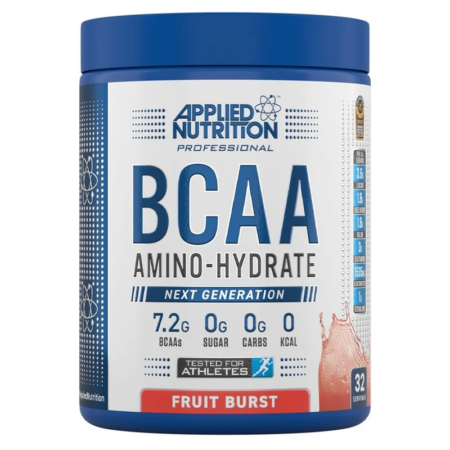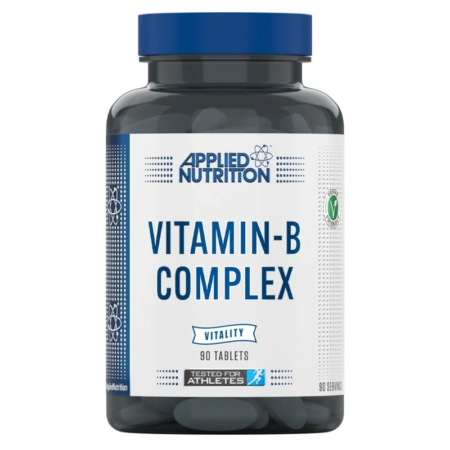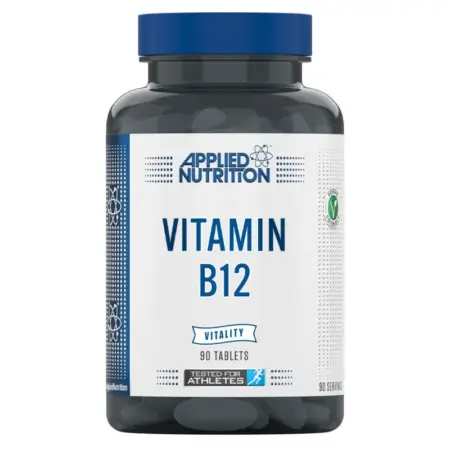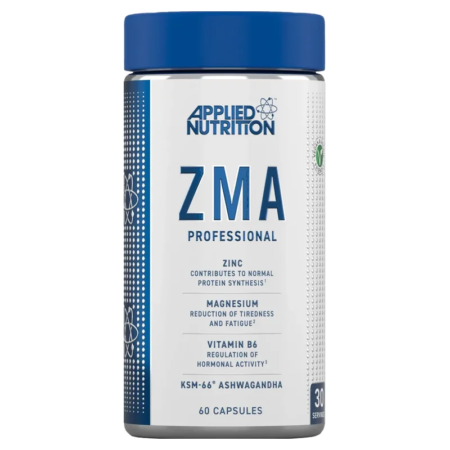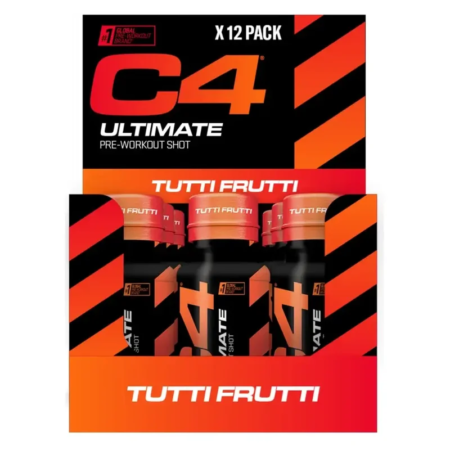Vitamin B
Vitamin B is essential for energy production and maintaining brain function. It plays a pivotal role in the body’s ability to transform food into energy. Vitamin B is not a single vitamin but a complex of several vitamins that work closely together.
While often overlooked, this vitamin complex is crucial for stress relief, nervous system support, and healthy skin. Understanding its benefits can help enhance your health significantly.
What is Vitamin B?
Vitamin B encompasses a group of essential nutrients, each distinct yet collectively crucial for cell metabolism. This complex includes various vitamins such as B1 (thiamine), B2 (riboflavin), B3 (niacin), B5 (pantothenic acid), B6 (pyridoxine), B7 (biotin), B9 (folate), and B12 (cobalamin). These vitamins are indispensable for several physiological functions, including red blood cell formation and maintaining liver health, as well as supporting the nervous system and enhancing immune function.
Maintaining adequate levels of Vitamin B is critical for health and well-being. Deficiencies in these vitamins can have a wide range of negative effects on the body. For instance, a lack of B12 can lead to anemia and neurological issues, while insufficient B6 may affect immune function and skin health. Adequate intake ensures the body’s energy systems operate efficiently, supports mental clarity and cognitive function, and helps maintain overall cellular health. The impact of Vitamin B on the body is profound, influencing everything from your energy levels to brain function and beyond.
Ensuring a balanced diet that includes a variety of foods rich in these vitamins or considering supplementation if necessary can help prevent deficiencies and support overall health. Regular monitoring through medical check-ups can also aid in maintaining optimal levels, especially in individuals at risk for deficiencies due to lifestyle or health conditions.
The Benefits of Vitamin B
The Vitamin B complex is essential for maintaining overall health and vitality, offering a myriad of benefits that impact various bodily functions. Here are some of the key benefits:
- Enhances energy production: Helps convert food into usable energy, keeping you active and energetic throughout the day.
- Improves cognitive function and brain health: Essential for neurological processes that enhance memory, concentration, and overall mental functioning.
- Reduces symptoms of stress and mood swings: Aids in the production of hormones and neurotransmitters that help regulate mood and manage stress.
- Supports the nervous system: Promotes healthy nerve function, which is essential for transmitting signals throughout the body and supporting muscle response.
- Encourages the production of healthy skin cells: Contributes to skin health and leads to a more vibrant, youthful appearance.
- Essential for forming red blood cells: Plays a critical role in preventing anemia and enhancing oxygen distribution, which boosts energy and vitality.
- Supports liver function: Helps detoxify the body by aiding the liver in processing and eliminating toxins, contributing to disease prevention and overall well-being.
Integrating Vitamin B-rich foods into your diet, such as whole grains, meats, eggs, nuts, and leafy greens, or considering supplementation, can greatly contribute to maintaining these crucial health benefits.
Signs of Vitamin B Deficiency
Recognizing the signs of Vitamin B deficiency is crucial for early intervention and preventing more severe health issues. Here are common indicators to watch for:
- Fatigue and weakness: A lack of energy and general lethargy can be early signs of Vitamin B deficiency, particularly B12 or folate.
- Confusion or memory problems: Vitamin B1 (thiamine) deficiency can lead to issues with concentration and memory.
- Skin rashes or cracks around the mouth: Deficiencies in Vitamin B2 (riboflavin), B6, and B3 (niacin) can manifest as skin issues, including inflammation and cracking.
- Anemia: A shortage of Vitamin B12 or B9 (folate) can impair red blood cell production, leading to anemia and related symptoms such as fatigue and paleness.
- Nerve damage with tingling or numbness: This can result from inadequate B12 intake, affecting the peripheral nerves.
- Changes in mood, such as irritability or depression: Vitamins B12, B6, and B3 are crucial for neurological function and mood regulation.
- Compromised immune function: Vitamin B6 plays a key role in supporting the immune system; a deficiency may weaken the body’s ability to ward off infections.
If you experience any of these symptoms, it’s important to consult with a healthcare professional who can advise on dietary changes or supplementation to correct the deficiency and restore your health.
Vitamin B for energy
How does Vitamin B help boost energy levels? It plays a crucial role in converting dietary energy into ATP, the molecule that powers our cells. What are the practical ways to use Vitamin B to enhance your energy? Including Vitamin B-rich foods in your diet or considering supplements can be effective strategies.
Which specific Vitamin B is most important for energy? Vitamin B12 and B6 are particularly significant due to their direct role in energy metabolism and red blood cell production.
Types of Vitamin B
Vitamin B complex includes several different vitamins, each with specific benefits. Here’s a brief overview:
- Vitamin B1 (Thiamine): Crucial for energy production and nerve function.
- Vitamin B2 (Riboflavin): Helps break down proteins, fats, and carbohydrates.
- Vitamin B3 (Niacin): Supports skin health and nervous system.
- Vitamin B5 (Pantothenic Acid): Necessary for hormone and cholesterol production.
- Vitamin B6 (Pyridoxine): Important for amino acid metabolism and red blood cell production.
- Vitamin B7 (Biotin): Assists in various metabolic reactions.
- Vitamin B9 (Folate): Essential for cell division and proper fetal development.
- Vitamin B12 (Cobalamin): Vital for nerve tissue health, brain function, and red blood cell development.
How much vitamin B complex do you need?
The recommended daily intake of Vitamin B varies depending on age, gender, and health conditions. Generally, adults should aim for about 2.4 micrograms of B12 and 1.3 milligrams of B6 per day. Always consult a healthcare provider to tailor the intake to your specific needs.
Best sources of Vitamin B in foods
What are the top dietary sources of Vitamin B? To ensure adequate intake, include a variety of Vitamin B-rich foods in your diet. Here’s a list of excellent sources:
- Whole grains (B1, B5)
- Meat and poultry (B2, B3, B6, B12)
- Fish and shellfish (B12, B6)
- Dairy products (B2, B12)
- Legumes and seeds (B1, B6)
- Dark leafy greens (B9)
- Eggs (B7, B12)
Why choose these foods? Not only do they provide a rich supply of the B-vitamins, but they also offer a balanced array of other nutrients essential for health.



